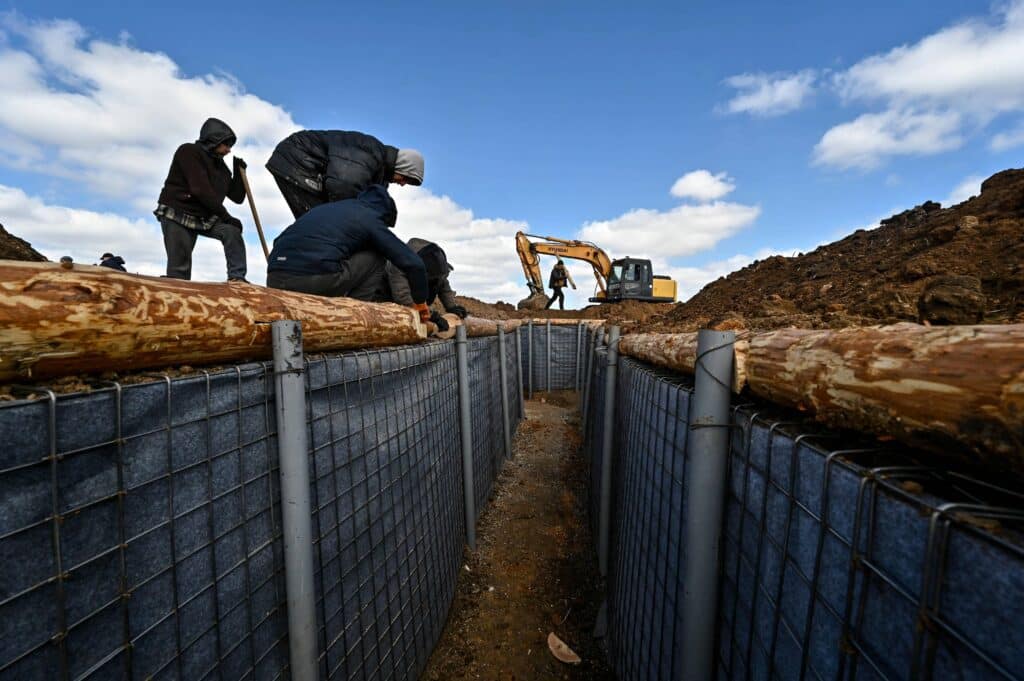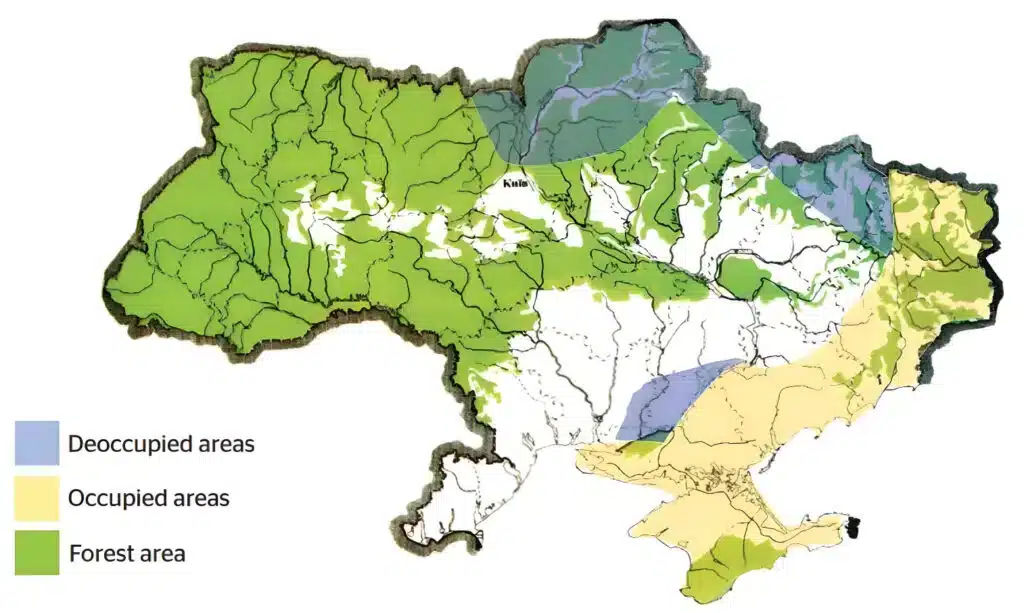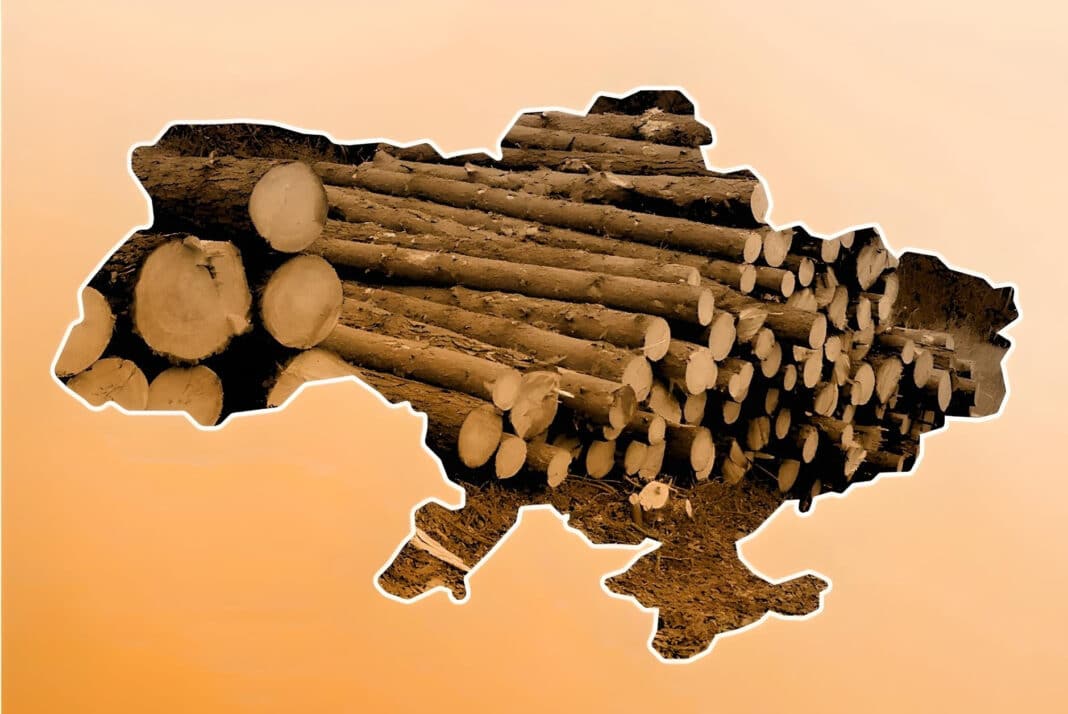Ukraine is cracking down on the surge of “gray wood” – where timber is illegally felled and sold via crime syndicates – from entering global markets, vowing to develop a “European model” for monitoring in the lead-up to the European Union Deforestation Regulation (EUDR).
The Zelenskyy government announced the new decree on Thursday, June 13. For the first time, the decree requires that all forest users take photos of timber during felling, haulage, and the value chain.
According to Ruslan Strilets, the Ukrainian Minister for Environmental Protection and Natural Resources, the new block-chain-like timber accounting system will track wood felled from the forest, from haulage to processing and distribution.
Since Russia’s full-scale invasion, the value of the Ukrainian forest economy has drastically increased relative to all other industries. As a result, Ukraine is now ramping up timber cutting to supply energy, front-line military fortifications, wooden pallets and furniture into the EU.

“This is because Ukraine’s main industrial areas were located in occupied and fought-over territories…with forests, thankfully, largely located in the “safe” areas of Ukraine and thus remain a largely intact resource,” according to a report provided by the Basel Institute of Governance, published last year, which added that forest products made up less than 1.5% of Ukraine’s GDP in the lead up to the conflict.
However, “continued attacks on civilian infrastructure are creating a high demand for forest products to generate heat and be used in reconstruction efforts,” the report said, adding that “the Ukrainian Government has recognised the sector’s increased importance by creating a new state-owned enterprise, Forests of Ukraine – now the country’s largest entity.”
How crime rings supply Chornobyl timber to global markets
“Gray wood” is a major problem facing the Ukrainian forest products industry, with Wood Central revealing that Ukrainian crime syndicates are now falsifying documents and selling deforested timber from within the Chornobyl Exclusion Zone. The syndicates then convert the proceeds of crime into foreign currency and use conflict and illegal logging to fuel an extensive criminal network.
The Chornobyl Exclusion Zone (CEZ) covers 2,800 square kilometres of northern Ukraine and represents the third-largest nature reserve in mainland Europe. The nuclear zone has become one of the world’s best examples of forest rewilding.

In 2020, Sergiy Zibtsev, a forestry expert at the National University of Life and Environmental Sciences of Ukraine, told the UN Environmental Programme that the 1986 nuclear accident created a richer forest ecosystem. “The pine plantations in 1986 have given way to more biodiverse primary forests, which are more resilient to climate change and wildfires and better able to sequester carbon.”
To date, more than 3.5 million hectares of Ukrainian forests have been damaged and destroyed from combat since the start of the war, with officials now working with US tech mogul Peter Thiel to use AI-powered drones to demine large swathes of forests.
- To learn more about the Ukraine war and its impact on the global forest economy, please review Wood Central’s special feature.






